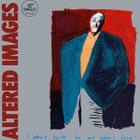Clare Grogan, singer–songwriter
Everything happened very quickly for us. When we started the band, the boys were all picking up their instruments for the first time. I borrowed a Cinderella dress from the school drama club and wore it at the Futurama festival in Leeds. John Peel saw us and everything went off. Bill Forsyth had already spotted me waitressing and wanted me to be in his new film, so the summer I left school I signed to Epic Records and made Gregory’s Girl.
We had a No 2 smash with Happy Birthday and naively thought it was always like this, but there was a backlash when we released our second album. It got to No 12 but had very bad reviews. I was still a young woman and was devastated. We were everybody’s favourite and then suddenly we weren’t. Two members left the band.
My sister worked for British Airways and could get us cheap flights, so I took a short break in the south of France to revitalise. When I came back, management had recruited Stephen Lironi, who I’d never met, and suddenly it was a completely different band. We decided on a more dancefloor sound. Looking back it’s extraordinary that it was virtually the first song Stephen and I wrote together – and we would end up being married. It’s a song about a brief encounter, which I’d never experienced: the classic eyes meet, intense situation but you know it’s not going to be for ever. I hadn’t had a boyfriend so would constantly imagine what it might be like.
We recorded the song in LA with Blondie producer Mike Chapman. I asked if I could use the same microphone as Debbie Harry and he said: “This is the one!” We had a strong vision but were these young bolshie Glaswegians telling people with much more experience what to do. Years later Mike told me: “You guys really pushed me to the edge”, but the song still resonates with people. A few summers ago I was in a cab with the windows down and when we stopped at the lights everyone in a sushi restaurant was singing Don’t Talk to Me About Love. I nearly got out of the cab and yelled: “It’s me!”
Stephen Lironi, drums, guitar, songwriter
After the drummer and guitarist left, I was brought in as a sort of “two for the price of one” deal because I could play both. I’d been in bands since performing in a wedding band when I was 11 – all you had to do was put on a velvet jacket and play The Last Waltz by Engelbert Humperdinck. Being from Glasgow, I knew all about Altered Images, but joining them was a chance to reinvent their sound.
We loved Chic and Donna Summer’s records with Giorgio Moroder, which Blondie had referenced on Parallel Lines. So we tried to write something with the classic disco tempo of 120 bpm. We assumed Blondie had used a sequencer on Heart of Glass, so got an Oberheim DSX to create a juddering electronic rhythm. But when we got out to LA with Mike, we found out he’d never worked with a sequencer in his life – Blondie had played the whole thing live. Still, along with Parallel Lines, he’d also done all the Sweet and Suzi Quatro records I had loved as a kid, so for me to be working with him when I was 18 was a dream.
I went straight from East Kilbride, a town on the outskirts of Glasgow, to LA to be picked up in a stretch limo. The US hadn’t joined the punk revolution, so there were all these people wearing kipper ties and flares. We recorded Don’t Talk to Me About Love in United Western Recorders, a classic old-school studio where the Beach Boys had recorded, but it was at the dark end of the street, so looking out of the window could be quite scary. We’d come through post-punk but all loved Shalamar, who were recording next door. Then Clem Burke from Blondie popped in to speak to Mike. The whole experience blew my mind.
I still had jet lag when I did the drum tracks. Tony “Tinny” McDaid played the funky fuzzy guitar riff, which borrows from It’s a Love Thing by the Whispers. I did the guitar solo using as few notes as possible. We knew it was a special song. Mike multi-tracked things and made us sound very sophisticated, but we were just naive young kids and kind of got away with it.

